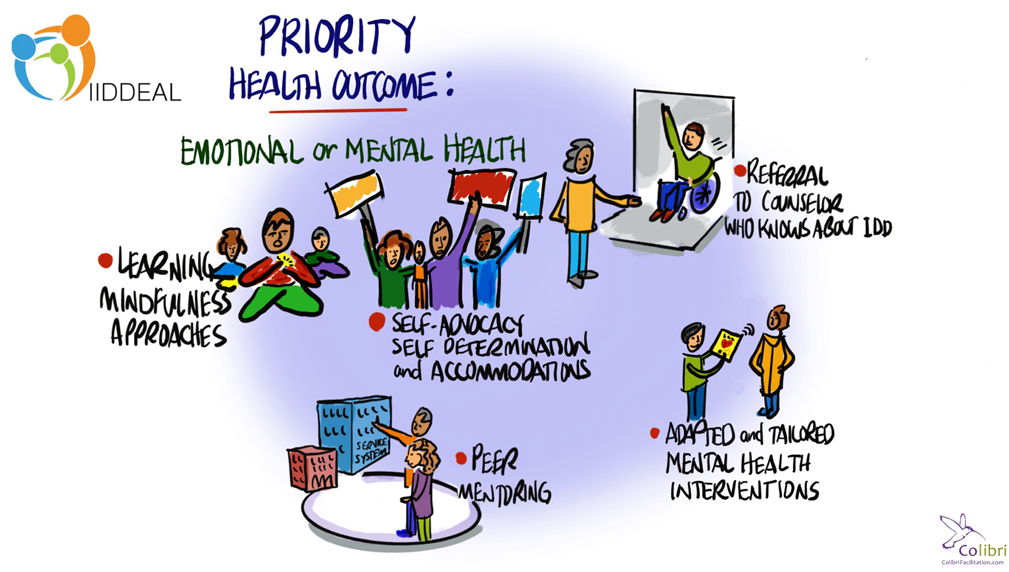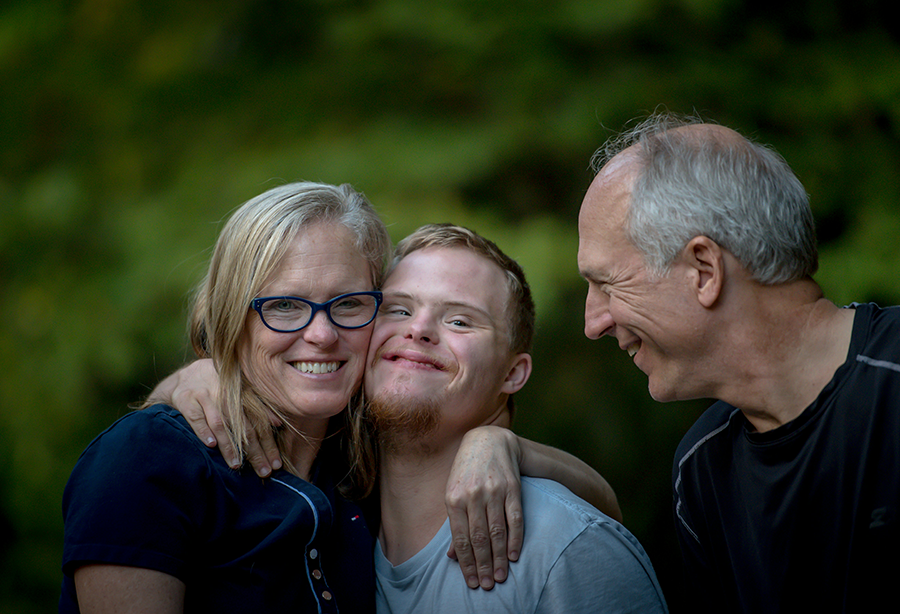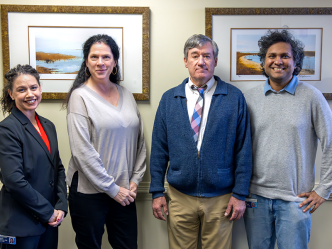At least 10 million people in the United States have an intellectual and/or developmental disability. People with IDD experience considerably higher rates of poor overall health, chronic conditions, mental health challenges, maternal mortality and preventable deaths. Recognizing those with IDD is a big first step to assisting them in their health care needs.

Teal Benevides, PhD, associate professor in the School of Public Health at Augusta University, is the project lead for Individuals with IDD Engaged, Aligned, and Leading, or IIDDEAL, which published “Advancing Health Policy and Outcomes for People With Intellectual or Developmental Disabilities,” in the Journal of American Medical Association.
IIDDEAL is focused on advancing health policy and outcomes for people with IDD. They do this to make sure people with IDD are helping to lead the project and building capacity for people to agree on what matters.
“I think it showcases how it is possible and feasible to ensure that priorities for health care are built on what people with IDD themselves say is important. Then we identified what next steps are and what goals we could set for the next 10 years to accomplish those outcomes,” said Benevides.
“Not only did we show that this is possible, and we can create a method for building consensus, but then this article also shows what we should aim to accomplish,” continued Benevides. “We identified a number of national goals and priorities and they fall into certain buckets of how we can act together and not surprisingly, they aligned with things that other groups feel are important to people.”
The article lays out 43 ambitious goals to achieve by 2035 and presents concrete milestones to improve outcomes that matter for people with IDD. The public comment period on these national goals is open through Sept. 30.
In today’s world it’s hard enough to get care when you are able to advocate for yourself, but it’s that much harder when other mitigating circumstances come into play.
That’s why she said research like this is there to amplify the voices of those with IDD to help break through those barriers for the health care they may need.

Benevides does see that people and health care providers are talking about IDD more than ever, and it’s a step in the right direction. But there’s a lot of steps still to take.
Those with IDD have different and varying levels of support needs related to communication, self-care and other life skills across all of their life expectancy. Despite this, those with IDD experience higher rates of poor overall health because there are barriers preventing them from getting the assistance they need.
“The main reason that I love doing this work is because people with IDD are our neighbors, they are our friends, they are married partners and work in our communities, and at the same time, they also experience many barriers in our communities and our health care systems. We have a number of inequities, and those inequities are unfairly placed burdens on people who were born with their IDD,” said Benevides.
The IIDDEAL team also concluded there needs to be a better way to measure IDD since so many individuals are not reflected in the national and state data collection surveys.
“We don’t have a consistent way of identifying IDD in the United States,” said Benevides. “We don’t have a way of capturing that in the medical record, so we won’t be able to understand the health of this patient population unless we have a consistent definition and unless we agree to measure it in a certain way.”
This work to engage people with IDD, caregivers, clinicians, and payers in identifying health outcomes that matter for future patient-centered outcomes research and to support capacity for these partners to collaborate in addressing priorities was funded by the Patient-Centered Outcomes Research Institute, Eugene Washington PCORI Engagement Award, EASC-IDD-00241 to Augusta University.
Through the IIDDEAL project, Benevides has started to work with the Institute for Exceptional Care, a nationwide nonprofit organization that works to make health care better and safer for people with IDD.
In collaboration with Mai Pham, MD, CEO and president of IEC , they quickly realized there could be a major benefit to the IDD community by collaborating to help amplify the voice of those who need it.
“I’m really proud of IEC and how they’ve just really broken down a lot of barriers at many places where nobody would even listen,” said Benevides. “I’m so excited that we’re continuing to partner with them on the next phase of this work.”
The statements and views presented in this article are solely the responsibility of the authors and do not necessarily represent the views of PCORI, its Board of Governors or Methodology Committee.
 Augusta University
Augusta University




